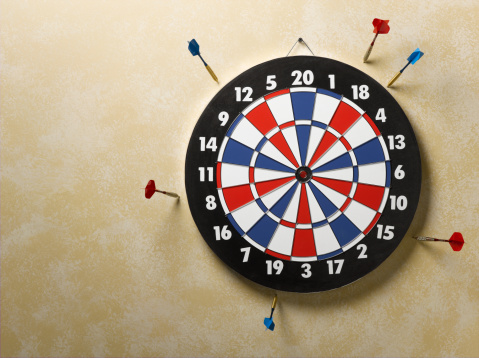
The word priority didn’t always mean what it does today.
In his best-selling book, Essentialism (audiobook), Greg McKeown explains the surprising history of the word and how its meaning has shifted over time.
The word priority came into the English language in the 1400s. It was singular. It meant the very first or prior thing. It stayed singular for the next five hundred years.
Only in the 1900s did we pluralize the term and start talking about priorities. Illogically, we reasoned that by changing the word we could bend reality. Somehow we would now be able to have multiple “first” things.
People and companies routinely try to do just that. One leader told me of this experience in a company that talked of “Pri-1, Pri-2, Pri-3, Pri-4, and Pri-5.” This gave the impression of many things being the priority but actually meant nothing was.
–Greg McKeown, Essentialism
The Myth of Multitasking
Yes, we are capable of doing two things at the same time. It is possible, for example, to watch TV while cooking dinner or to answer an email while talking on the phone.
What is impossible, however, is concentrating on two tasks at once. Multitasking forces your brain to switch back and forth very quickly from one task to another.
This wouldn’t be a big deal if the human brain could transition seamlessly from one job to the next, but it can’t. Multitasking forces you to pay a mental price each time you interrupt one task and jump to another. In psychology terms, this mental price is called the switching cost.
Switching cost is the disruption in performance that we experience when we switch our attention from one task to another. A 2003 study published in the International Journal of Information Management found that the typical person checks email once every five minutes and that, on average, it takes 64 seconds to resume the previous task after checking your email.
In other words, because of email alone we typically waste one out of every six minutes.
While we’re on the subject, the word multitasking first appeared in 1965 IBM report talking about the capabilities of its latest computer.
That’s right, it wasn’t until the 1960s that anyone could even claim to be good at multitasking. Today, people wear the word like a badge of honor as if it is better to be busy with all the things than to be great at one thing.
Finding Your Anchor Task
Doing more things does not drive faster or better results. Doing better things drives better results. Even more accurately, doing one thing as best you can drives better results.
Mastery requires focus and consistency.
I haven’t mastered the art of focus and concentration yet, but I’m working on it. One of the major improvements I’ve made recently is to assign one (and only one) priority to each work day. Although I plan to complete other tasks during the day, my priority task is the one non-negotiable thing that must get done.
Here’s what my current weekly schedule looks like…
The power of choosing one priority is that it naturally guides your behavior by forcing you to organize your life around that responsibility. Your priority becomes an anchor task, the mainstay that holds the rest of your day in place. If things get crazy, there is no debate about what to do or not to do. You have already decided what is urgent and what is important.
Saying No to Being Busy
As a society, we’ve fallen into a trap of busyness and overwork. In many ways, we have mistaken all this activity to be something meaningful. The underlying thought seems to be, “Look how busy I am? If I’m doing all this work, I must be doing something important.” And, by extension, “I must be important because I’m so busy.”
While I firmly believe everyone has worth and value, I think we’re kidding ourselves if we believe being busy is what drives meaning in our lives.
In my experience, meaning is derived from contributing something of value to your corner of the universe. And the more I study people who are able to do that, people who are masters of their craft, the more I notice that they have one thing in common. The people who do the most valuable work have a remarkable willingness to say no to distractions and focus on their one thing.
I think we need to say no to being busy and say yes to being committed to our craft. What do you want to master? What is the one priority that anchors your life or work each day?
If you commit to nothing you’ll be distracted by everything.
James Clear writes at JamesClear.com about building better habits and improving your mental and physical performance. For more useful ideas, join his free weekly newsletter. This piece originally appeared on JamesClear.com.
More from JamesClear.com:
More Must-Reads from TIME
- Cybersecurity Experts Are Sounding the Alarm on DOGE
- Meet the 2025 Women of the Year
- The Harsh Truth About Disability Inclusion
- Why Do More Young Adults Have Cancer?
- Colman Domingo Leads With Radical Love
- How to Get Better at Doing Things Alone
- Michelle Zauner Stares Down the Darkness
Contact us at letters@time.com